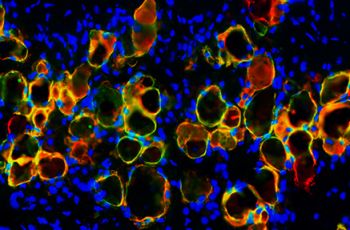Infectious disease researchers strive to halt the harmful effects of viruses — and for Richard Whitley, M.D. ’71, the same was true, for the first 25 years of his career. “I used to try and keep herpes simplex out of people — particularly out of the brain,” he says. But since then, he’s also done exactly the opposite. Through a surprising finding, Whitley actually inserts the virus in the brain in order to combat a certain type of cancer.
This type of revolutionary, break-the-mold thinking has been the hallmark of Whitley’s career. As director of the Division of Pediatric Infectious Diseases at the University of Alabama at Birmingham, he has become legendary in the field, translating molecular biology to clinical application and developing antiviral therapies to fight elusive infections such as herpes simplex, congenital cytomegalovirus, and influenza. Most recently, he was installed as president of the Infectious Diseases Society of America, which establishes guidelines for treatment and prevention of infection and educates policymakers and the public on health issues.
“These diseases aren’t all that common, but they can be devastating when people get them,” says Whitley, who can pinpoint the exact moment when his passion for this field began. While a GW medical student on a pediatric rotation,he detected a baby who had congenital cytomegalovirus infection. “I became fascinated as to why a woman would transmit infection to her fetus in utero,” he explains. “It was that child, that experience, which started me on the road of being a clinical virologist.”
At the suggestion of his GW faculty adviser, Whitley continued his studies at UAB, where similar research was underway. While completing a pediatric internship, residency, and fellowship, he developed a further interest in the herpes simplex virus infections and went on to join UAB’s faculty.
Whitley soon became renowned for helping to develop vidarabine, the first treatment for herpes simplex encephalitis. His discovery opened the door to an entire field of antiviral therapy, guiding labs nationwide in the development of treatments for infectious diseases. After decades of research on herpes, Whitley discovered that a genetically modified version of the virus effectively destroys tumor cells in patients with glioblastoma multiformae, without harming surrounding normal cells. His studies have shown the ability to prolong survival in about 20 percent of recurring cases, an astounding statistic for the deadly disease.
Whitley humbly attributes these successes to those who came before him, including his GW professors. “I’ve been very lucky, and part of that luck came from being influenced by mentors and doctors who taught me both basic science and how to be a good doctor.”


